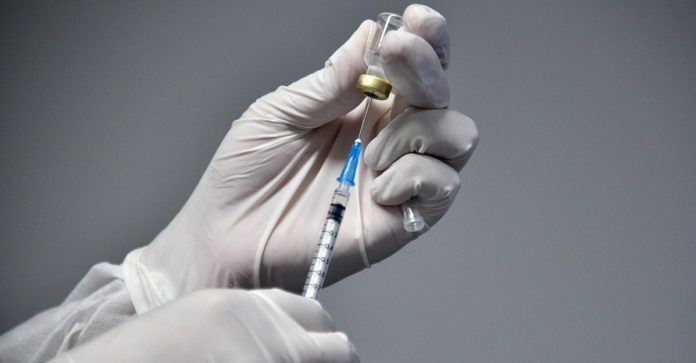
This is an edition of Up for Debate, a newsletter by Conor Friedersdorf. On Wednesdays, he rounds up timely conversations and solicits reader responses to one thought-provoking question. Later, he publishes some thoughtful replies. Sign up for the newsletter here.
Question of the Week
I need a week’s respite from heavy news, so it’s time for your hot takes: What do you love or hate about summer––nostalgic stories are very much allowed––and where does it rank among the seasons? (Extra credit if you conclude your message by nominating a best summer song.)
Send responses to conor@theatlantic.com.
Conversations of Note
Top of mind this week is public health, but don’t worry, dear reader: I’m not going to scold you, as so often happens when one hears those words––I’m going to scold America’s public-health officials, whose failures continue to compound in ways that suggest, at best, ongoing dysfunction.
The scope of failure is much bigger than the coronavirus pandemic, though that’s where we’ll begin. Over time, as the virus has evolved, the mRNA vaccines have gotten less and less effective. Fortunately, they can be tweaked. Unfortunately, regulators are moving far too slowly.
In the Slow Boring newsletter Matt Yglesias explains:
We’ve gone from the impressive technical achievement of rolling out the original vaccines in record time to a sorry situation in which the FDA is authorizing Omicron-optimized boosters only after Omicron has vanished … We’re not even really going to get these shots in people’s arms in time to protect them from BA.2—we’re hoping to catch BA.5 with a vaccine that is two variants old. What’s particularly upsetting is the clinical trials for the Omicron-optimized vaccine started January 25. The science itself was done before the trials began. As Eric Topol writes, “it took more than 7 months for the Omicron BA.1 booster to be tested, a delay that is exceedingly long and unacceptable relative to the timing of validation and production of the original vaccines in 10 months during 2020.”
Yglesias concludes, “Slowly updating vaccines to chase variants that are already in the rearview mirror is not an acceptable global Covid strategy. We need to speed up the pace of clinical trials.” Topol adds, “All of this gets back to the vital need for a new generation of vaccines that are universal … and the pivotal importance of nasal vaccines to promote mucosal immunity.”
Of course, even an approved vaccine is of limited use if it doesn’t get into people’s arms to prevent illness. Which brings us to monkeypox, another disease that is currently spreading. Josh Barro, one of the lucky few to get vaccinated against it, explains the situation in his newsletter:
Monkeypox is very unlikely to kill you, but it’s a very unpleasant disease that … you should be taking steps to avoid it if you’re at significant risk of getting it — which is generally to say, if you are a gay man who has extensive skin-to-skin contact with other gay men … We already have an FDA-approved, government-stockpiled vaccine that prevents monkeypox. There are maybe about 5 million adult gay men in the US, but the number who really meet the relevant risk criteria is a lot smaller than that—we’re probably talking about no more than a few hundred thousand people who are near-term candidates for the vaccine and—as we’ve learned the hard way through COVID — not everyone who’s a good candidate for the vaccine will actually want to get it.
So how hard could it be to get the vaccine to the relevant people who do want it? Well, it could be pretty hard, actually, since the government’s strategic stockpile only contains tens of thousands of doses of the relevant vaccine, called JYNNEOS … This extremely tight vaccine supply seems to be what has led to an absurd situation in New York City over the last two weeks. On Thursday, June 23, the city’s health department suddenly announced a monkeypox vaccination clinic aimed at men who have sex with men that would begin administering doses—apparently realizing the risk of monkeypox spread at Pride festivities that were set to begin on Friday, June 24. This was announced on the morning of June 23, just minutes before the clinic opened. And word spread among some of New York’s party-frequenting gays in the manner of a PTA phone tree.
The problem was the city had only 1,000 doses of JYNNEOS to give out based on risk factors alone, so all the appointments were gone within about an hour of the announcement. The health department website said they would offer more appointments once they had more supply from the CDC, and to check back about that on Sunday (June 26)—but the CDC didn’t actually send any more doses (probably because of the very limited national supply) and so there were no additional appointment slots to speak of. The city now says the CDC has agreed to send about 6,000 more doses, but they’re not here yet, and as of July 5 there still aren’t more appointments being offered. To say that many people I know are angry about this would be an understatement.
Meanwhile, as The Hill reports, “Infectious disease experts and public health advocates are warning that the Biden administration has been too slow to respond to the monkeypox outbreak and that the U.S. is at risk of losing control of the disease.” It quotes David Harvey of the National Coalition of STD Directors. “Where we have lagged is streamlining testing, making vaccines available, and streamlining access to the best therapeutics,” he said. “All three areas have been bureaucratic and slow, and that means we haven’t contained this outbreak.”
Last year, I wrote about the deadliness of FDA delays.
In fairness, pandemics and epidemics are especially challenging circumstances. How well are America’s public-health officials performing on more pedestrian, nonemergency matters? Amanda Mull notes that the active ingredient in sunscreen that Americans use is the same as ever, whereas consumers in Europe and Asia and Australia have access to superior new technology.
Mull writes:
In formal statements and position papers, doctors and cancer-prevention advocates express considerable interest in bringing new sunscreen ingredients to the American market, but not a lot of optimism that any will be available soon. The FDA hasn’t added a new active ingredient to its sunscreen monograph—the document that details what is legally allowed in products marketed in the U.S.—in decades … In 2014, Congress passed a law attempting to speed access to sunscreen ingredients that have been in wide use in other countries for years, but it hasn’t really worked … According to Courtney Rhodes, a spokesperson for the FDA, manufacturers have submitted eight new active ingredients for consideration. The agency has asked them to provide additional data in support of those applications, but none of them has yet satisfied the agency’s requirements.
The economist Alex Tabarrok was complaining about this way back in 2013.
Given all that, you might think the FDA is marshaling as many resources as possible to improve speed and efficiency on pressing matters. In fact, it is fighting with the vape company Juul.
The American pediatrician John Gall hypothesized in his 1975 book, General Systemantics, that systems are seductive:
They promise to do a hard job faster, better, and more easily than you could do it by yourself. But if you set up a system, you are likely to find your time and effort now being consumed in the care and feeding of the system itself. New problems are created by its very presence. Once set up, it won’t go away, it grows and encroaches. It begins to do strange and wonderful things. Breaks down in ways you never thought possible. It kicks back, gets in the way, and opposes its own proper function. Your own perspective becomes distorted by being in the system. You become anxious and push on it to make it work. Eventually you come to believe that the misbegotten product it so grudgingly delivers is what you really wanted all the time. At that point encroachment has become complete. You have become absorbed. You are now a systems person.
America’s public-health officials are very much “systems people.”
Provocation of the Week
In “The Medium Is the Menace,” Andrey Mir writes:
Instant gratification for online activity drives the user engagement that Internet platforms require to be profitable. But when practiced almost eight hours per day (the time spent by an average American online), this behavior also forms a habit—a neuro-disposition, adjusted to certain interactions with the world. The brain rewires itself …
Digital natives are fit for their new environment but not for the old one. Coaches complain that teenagers are unable to hold a hockey stick or do pull-ups. Digital natives’ peripheral vision—required for safety in physical space—is deteriorating. With these deficits come advantages in the digital realm. The eye is adjusting to tunnel vision—a digital native can see on-screen details that a digital immigrant can’t see. When playing video games, digital immigrants still instinctively dodge bullets or blows, but digital natives do not. Their bodies don’t perceive an imaginary digital threat as a real one, which is only logical. Their sensorium has readjusted to ignore fake digital threats that simulate physical ones. No need for an instinctive fear of heights or trauma: in the digital world, even death can be overcome by re-spawning. Yet what will happen when millions of young people with poor grip strength, peripheral blindness, and no instinctive fear of collision start, say, driving cars? Will media evolution be there in time to replace drivers with autopilots in self-driving vehicles?
There’s lots more of interest in the full essay at City Journal.
Thanks for your contributions. I read every one that you send. By submitting an email, you’ve agreed to let us use it—in part or in full—in the newsletter and on our website. Published feedback may include a writer’s full name, city, and state, unless otherwise requested in your initial note.








